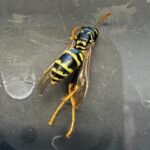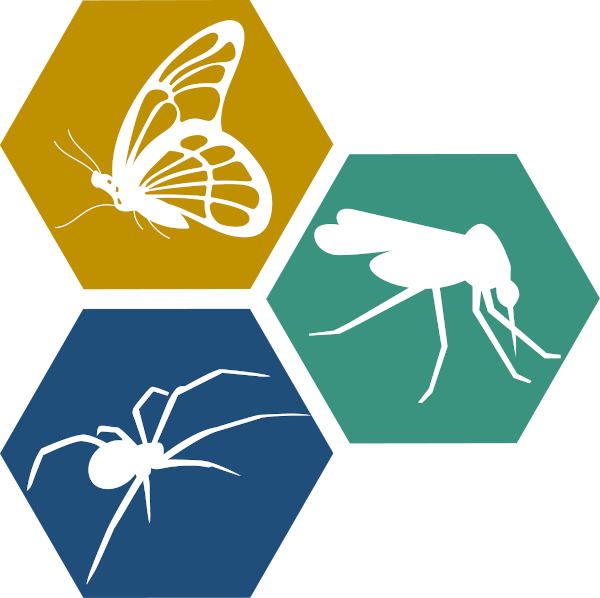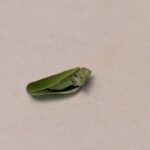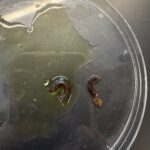Sample information |
|
| Picture |


|
|---|---|
| Location | |
| Collection date | 06/03/2025 |
| Captive / Cultivated? | Wild-caught |
| Group | Pingry School |
| Observations | A black insect with a brown thorax. It has six legs, mandibles, and antennas |
| Putative identification | Arthropoda Insecta Hymenoptera Formicidae Camponotus |
Methods |
|
| Extraction kit | DNeasy (Qiagen) blood and tissue kit |
| DNA extraction location | Whole arthropod |
| Single or Duplex PCR | Single Reaction |
| Gel electrophoresis system | Standard electrophoresis system |
| Buffer | 1X TAE |
| DNA stain | SYBR Safe |
| Gel images |

|
| Protocol notes | DNA was extracted using the DNeasy extraction kit. Then, PCR was performed to amplify DNA in order to test for Wolbachia and arthropod DNA in gel electrophoresis. We used 2% gel using 1X TAE buffer and agarose. In the gel, the top wells were used to test for arthropod DNA while the bottom wells were used to test for the presence or absence of Wolbachia. 10 microliters of sample and 4 microliters of dye were loaded into the gel. The first wells on both the top and bottom were the ladder, then the bug sample, positive and negative arthropod controls, and a negative DNA control. |
Results |
|
| Wolbachia presence | Yes |
| Confidence level | High |
| Explanation of confidence level | Results support insect is both an arthropod and is infected with Wolbachia. The second column on the top row shows insect is an arthropod—it contains the arthropod gene. The second column on the bottom row shows insect is infected with Wolbachia. Arthropod band is approximately 5kb long, Wolbachia band is approximately 2.5kb long |
| Wolbachia 16S sequence | Download FASTA
Download AB1
GTTGGGTTAAGTCCCGCAACGAGCGCAACCCTCATCCTTAGTTACCATCAGGTAATGCTGGGGACTTTAAGGAAACTGCCAGTGATAAACTGGAGGAAGGTGGGGATGATGTCAAGTCATCATGGCCCTTATGGAGTGGGCTACACACGTGCTACAATGGTGGCTACAATGGGCTGCAAAGTCGCGAGGCTAAGCTAATCCCTTAAAAGCCATCTCAGTTCGGATTGTACTCTGCAACTCGAGTGCATGAAGTTGGAATCGCTAGTAATCGTGGATCAGCACGCCAC
BLAST at The Wolbachia Project BLAST at NCBI
|
| Arthropod COI sequence | Download FASTA
Download AB1
TTTATTAATGAAGGATCTGGAACTGGTTGGACTGTCTACCCCCCTCTATCATCAAATACCTTCCATAGTGGCCCCTCTATTGACCTGACTATCTTTTCTCTCCATATTGCTGGTATATCCTCAATTATAGGAGCAATCAATTTTATTTCAACAATTATAAATATACATAATTCCAATATTTCCCTAGATAAAATTCCCTTATTAGTATGGTCTATTCTTATTACAGCTATTCTCCTTCTTCTGTCCCTACCTGTTCTAGCAGGAGCTATTACAATACTACTAACAGACCGAAATCTTAATACTTCATTTTTCGACCCTTCGGGAGGGGGAGATCCTATTTTATACCAACATTTATTTTGATTTTTTGGTCACCC
BLAST at The Wolbachia Project BLAST at NCBI
|
| Summary | The Camponotus was found to be postive for Wolbachia. |
 European Wasp
European Wasp Small Honey Ant
Small Honey Ant 7A
7A Millipede 7F
Millipede 7F